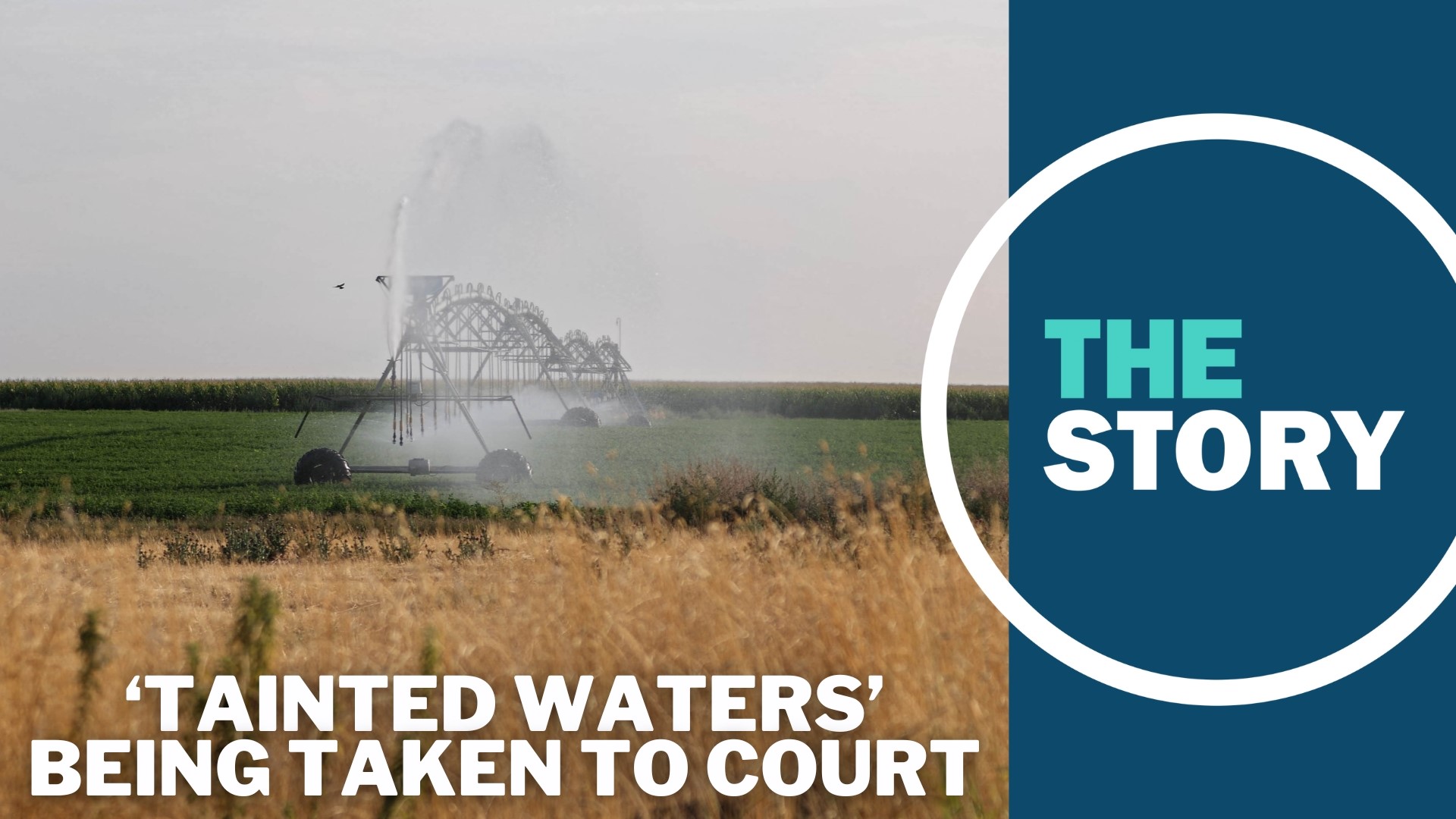BOARDMAN, Ore. — For years, residents of Morrow and Umatilla counties have dealt with groundwater contamination. It's a problem that the state of Oregon has known about for three decades — but progress toward a meaningful fix has been slow, to say the least.
Instead of waiting any longer for the state to step in, residents of the Lower Umatilla Basin have now decided to lawyer up; filing a class action lawsuit against the Port of Morrow, large commercial farms and a confined animal feeding operation.
The Lower Umatilla Basin is located about 160 miles east of Portland, covering 562 square miles in northern Umatilla and Morrow counties near the Columbia River. The aquifer beneath the ground is contaminated with nitrates, which seep from the soil and down into the underground water supply that many residential wells tap into.
Nitrates in the region have been linked to commercial farms spreading fertilizer and food producers spreading nitrate-laden wastewater on farm fields, as well as large animal feeding operations.
As many as 4,500 private wells access the aquifer, which residents use for drinking water, cooking and bathing. While there's nothing visibly wrong with the Lower Umatilla Basin's water, it's loaded with nitrates. The federal government's "maximum contaminant level" for nitrates is 10 parts per million in any public water system. Some residents in the basin say their wells have tested between 25 and 37 parts per million.
The lawsuit alleges that the defendants have over-applied fertilizer and nitrogen-rich industrial wastewater to fields in the region, causing the nitrates to seep down into the aquifer. It alleges, the Port of Morrow has been violating permits from the Oregon Department of Environmental Qualify both repeatedly and intentionally.
According to the suit, the port violated its wastewater permit at least 395 times between November 1, 2023 and the first week-and-a-half of January 2024. That covers a span of 71 days, which means violations allegedly occurred an average of five times a day or more.
This week, The Story's Pat Dooris spoke with the lawyer representing the eastern Oregonians who filed this lawsuit. Steve Berman of Hagens Berman Sobol Shapiro said he's not surprised that the state of Oregon has done little to curb the problem.
"There's some very powerful agri-businesses and the port, they make a ton of money off dumping this polluted water, and they have a lot of clout. So no, I wasn't surprised," Berman said. "I think it's gone on so long because a lot of the victims are low-income minorities who can't afford to hire lawyers, don't have a voice in politics. As I said earlier today, if this was happening to a wealthy suburb of Portland, it would have been stopped years ago."
The plaintiffs hope to force the Port of Morrow and other businesses to change the way they do things and ensure that nitrates aren't getting into the water supply, whether that's through a filtering process or something else. And if that isn't feasible, the complaint wants those companies to pay for a medical monitoring program and test the people who are being exposed to that contaminated water.
"The one thing that keep in mind here is you have Port of Morrow and Lamb Weston that have violated their discharge permits over and over again, and recently the Port of Morrow said, 'So what, we're going to keep doing it,'" Berman said. "So, not only do you have pollution, but you have people knowing that they're polluting this groundwater and they say they're going to do it anyway. That's outrageous behavior."
While the Port of Morrow did not want to talk to KGW during the "Tainted Waters" series, they and other producers have said in other venues that reducing nitrates would be prohibitively expensive for the industry. Berman finds that laughable.
"You don't have the right, because you want to make money, to harm other people and their property," Berman said. "That's just basic American law. So if that's their answer, bring it on. Look forward to seeing them in court."
KGW reached out to the Port of Morrow for comment on the lawsuit. They had the following to say Thursday:
"While the Port hasn't officially been served with the complaint, we take any actions like this seriously, but reserve the right to respond until after we've had a chance to review the filing."
The Port of Morrow did contact KGW recently to point out that they are not the primary entity responsible for groundwater contamination in the region. Data from the Oregon DEQ suggests that irrigated agriculture is responsible for nearly 70% of the nitrates. Confined animal feed lots are responsible for just over 12%, while "food processing land application" (which the port is considered) was responsible for less than 5% of nitrates, according to that data.
"It's worth noting that industrial wastewater reuse is an accepted environmental strategy in Oregon because it avoids wasting a water resource and putting further pressure on limited water sources in our region," the Port of Morrow said.
Oregon has fined the Port of Morrow more than $2 million for wastewater permit violations thus far. Port officials have said they're working on a $500 million project to reduce the nitrates in their wastewater before sending it out to farmers. That's set to be completed in 2025, and the port claims that the water will then meet or exceed DEQ standards.

